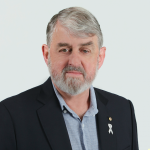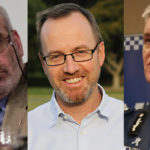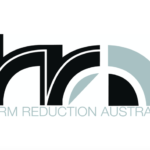The Time Is Ripe for Drug Law Reform in New South Wales

NSW Greens MLC Cate Faehrmann hit the opening of the 58th NSW parliament running, as she moved four notices of motion on its second day indicating soon-to-be-tabled bills on key drug law reforms: pill testing, cannabis legalisation, a medical cannabis driving defence and decriminalisation.
The urgency around the progressive pollie’s moves is, Faehrmann’s well-aware that the makeup of both houses under the Minns Labor government is peppered with drug reform-minded MPs, who have, at times, openly expressed the need for the failed zero-tolerance approach to be dropped.
These members include a record number of Greens MPs, Independent Alex Greenwich, Legalise Cannabis MLC Jeremy Buckingham and a good number of Labor members have openly spoken in favour of drug law reforms of various types in the past, including transport minister Jo Haylen.
NSW premier Chris Minns argued for legalising and regulating cannabis in opposition back in 2019, whilst current leader of the Coalition in opposition Mark Speakman argued for a cautioning scheme for minor drug possession last year, which was against the tide of the then Perrottet cabinet.
But to get the robust sort of drug law reform needed in NSW, a politician needs to step up and prioritise what medical and legal experts have long called for, and Faehrmann has shown herself to be that driving force, ever since stepping into the political arena with a bold admission for an MP.
Reducing drug harms and deaths
“The end of more than a decade of Liberal Nationals in power means there are now exciting opportunities for drug law reform,” said Faehrmann. “Yet, despite the statements of a few individual MPs, Labor in government hasn’t indicated they’re ready to engage in any meaningful reform.”
“Labor has said they won’t commit to anything until they hold a drug summit,” the Greens MLC told Sydney Criminal Lawyers. “This is frustrating because of the mountain of evidence that led to those key recommendations from the ice inquiry and the coronial inquest into deaths at music festivals.”
Yet, the findings of Professor Dan Howard SC and NSW deputy state coroner Harriet Grahame continue to hold the weight of thorough investigations by experts not usually prone to make such proposals, while not actioning them reveals weak governments putting votes before public health.
Key recommendations aimed at saving lives and reducing drugs harms in the NSW community coming out of both those inquiries were the decriminalisation of the personal possession and use of all illegal drugs and the roll out of pill testing, as well as abolishing drug dog use at festivals.
“I personally don’t think we need more talk. However, if Labor needs a mandate, then let’s make sure the drug summit gives them one,” Faehrmann maintained.
“We need to also make sure that any drug policies arising from it are driven by evidence, along with the fundamental objective to reduce the harm from drugs and save lives.”
Behind the eight ball
Faehrmann and her fellow drug reform supporting colleagues on Macquarie Street are no lone wolves in the Australian political setting, rather what’s closer to the truth is those reactionary dinosaurs against drug reforms still stomping the halls of parliament are fast becoming the anomaly.
The Labor Greens government in the ACT legalised the personal possession and use of cannabis in early 2020, while the nation’s seat of federal parliament is also set to see drug decriminalisation commence in October, and that jurisdiction has had fixed site pill testing running since last July.
While, north of the border, the Palaszczuk government announced the roll out of pill testing at fixed and mobile sites in February, and then passed laws in April providing that minor drug possession is met with a caution and an offer of treatment on three occasions, prior to arrest on a fourth.
“I’ve been told by stakeholders that when Queensland implements pill testing, they expect many festivals, particularly those in the Northern Rivers, to head north, as it will be seen as a much safer environment for festival operators who prioritise drug harm reduction,” advised Faehrmann.
Medicinal cannabis driving defence
“Drug-driving reform that protects medicinal cannabis patients is long overdue here in NSW,” the Greens MLC added, “and unfortunately, we look like we’re going to be one of the last states to act in this area too.”
Despite cannabis medicine having been legal on prescription in NSW since 2016, the government has refused to permit those lawfully using it a defence against being charged for drug driving, even though roadside testing picks up any trace of cannabis and doesn’t indicate intoxication.
Tasmania has permitted medicinal cannabis users this defence for years. The Andrews government has made it a priority to enact such a defence, with Legalise Cannabis Victoria having introduced legislation, while Queensland transport authorities are currently reviewing that state’s laws.
Faehrmann has been persistently pushing for a medicinal cannabis driving defence since 2019. However, when it comes to this state’s drug driving laws, ultraconservative politicians have been determined not to budge, especially with the NSW Police Force whispering into their ears.
“NSW medicinal cannabis patients living on the Victorian border will face the risk of losing their licence in their hometown but being protected just a few kilometres away,” Faehrmann foresees.
“Those disparities will put a lot of pressure on our government to act as the number of medicinal cannabis patients grows and people realise change is possible.”
Legalise it, don’t criticise it
These days, it’s quite common if watching an American television program for characters, whether in their twenties or forties, to light up a joint and smoke it with their mate. And this seems to be, more often than not, the actors portraying those who might be classed as “geeky types”.
The US was the great force behind international drug prohibition laws of the early 20th century, and it further launched the war on drugs in the 1970s. But 22 US states have now legalised the adult recreational use of cannabis, since 2012.
And this is now a global trend, with the entire nations of Uruguay, Canada, Malta and Thailand having done the same, whilst the highest courts in the nations of South Africa and Mexico have found that it is lawful for private recreational use of the plant in people’s homes.
According to Faehrmann, seeing cannabis successfully legalised in these other jurisdictions, including personal possession and use in the ACT, a territory within NSW’s borders, leads to the arrest of locals here over their own use not only being absurd, but it reveals the law as downright cruel.
“As more countries relax their cannabis laws and a growing number of people discover the benefits of taking cannabis medicinally, public support for legalisation will only continue to grow,” the NSW Greens harm reduction spokesperson underscored.
The 1999 NSW Drug Summit was groundbreaking, as it overwhelmingly changed public attitudes in regard to the drug issue and the harm reduction approach to it. And it also led to the establishment of the Kings Cross medically supervised injecting facility.
But a repeat of that process decades later is just a delaying tactic by a governing body too scared to act in a way that will save lives, even when there is a wealth of government-commissioned reports detailing the path forward and party members who support them.
“I know I’m not the only one who is frustrated that any significant drug law reform will need to wait until after the government’s proposed drug summit, which apparently isn’t until next year,” Faehrmann said in conclusion.
“However, if it gives the government the mandate it needs for some serious reform in this space in the coming years, then it’s definitely worth the wait.”







